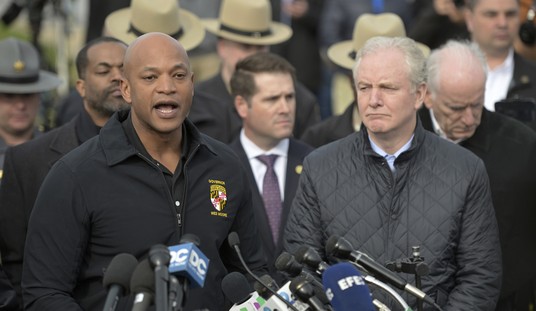Remember Joe Horn? He’s a free man, as of this afternoon. I didn’t follow the case last year when debate was raging, but ABC has a gripping account of the particulars. He was on the phone with 911, shotgun in hand, watching two burglars rob his neighbor’s house in broad daylight; the operator told him to stay put and that the cops were on the way, but Horn replied that he couldn’t let them get away with it and couldn’t be sure that they wouldn’t make a move on his house next. So he went outside, caught them coming out of his neighbor’s house, told them to stop, and when they didn’t he shot them both — dead, both in the back, although per the Chronicle link above one of the suspects ran towards him before veering away, which is how he ended up hit from behind.
The legal justification is supposedly the “Castle Doctrine,” a subset of Texas’s self-defense law that lets you defend yourself and your property by firing on an unlawful intruder without having to “retreat” first. Having spent the past hour poring over the statutes and giving myself a migraine, it seems to me there are two gray areas: One, whether Horn is to be thought of as defending his home, his neighbor’s home, or himself when the shootings occurred, and two, whether having the right to “stand your ground” (i.e. not retreat) entitles you to precipitate a confrontation that could have been avoided by simply not doing anything. The sections that authorize defense of property (9.42 and 9.43) do allow for deadly force — but only at nighttime in the case of burglary, presumably because it’s harder to tell what a burglar’s packing in dim light and also because a burglar who’s coming through the window at an hour when he knows people are likely to be home is likely to be a bolder, more dangerous burglar. The Horn shootings happened in broad daylight. Which means if he’s off the hook, it has to be on grounds that he was protecting himself, not his property, during the confrontation with the burglars. Per section 9.32, deadly force can be used if “immediately necessary” to save yourself from being murdered and/or robbed. That’s arguably reasonable in Horn’s case (although there’s no word of them producing a weapon), but what if he had just stayed in the house and avoided them entirely? Enter subsection (c):
A person who has a right to be present at the location where the deadly force is used, who has not provoked the person against whom the deadly force is used, and who is not engaged in criminal activity at the time the deadly force is used is not required to retreat before using deadly force as described by this section.
There’s the “stand your ground” provision. If it justifies him leaving the house to face them down, it’s not so much an exemption from the duty to retreat as an affirmative right to advance. And how was deadly force “immediately” necessary if it could have been prevented just by sitting tight? He’s got the shotgun and he’s watching them; if they try to come in his house, they’ll never know what hit them. Eh, whatever. It’s not worth parsing the statutes too finely since ultimately it’s in a (grand) jury’s hands and they’re not going to send an old man to jail for shooting two felons caught in the act, whatever the felony and time of day.








Join the conversation as a VIP Member